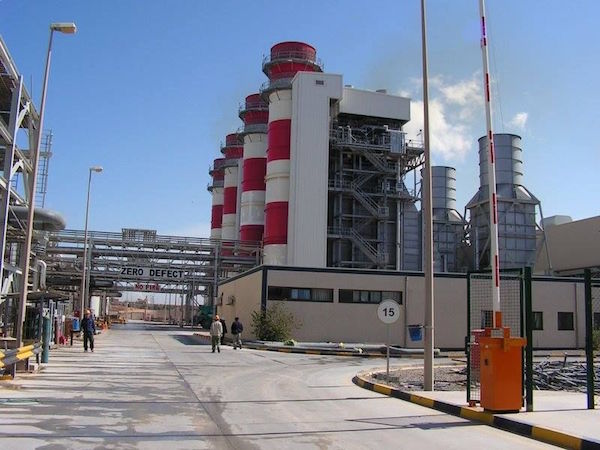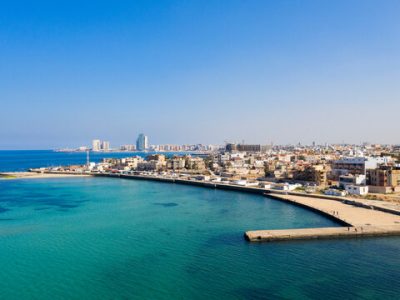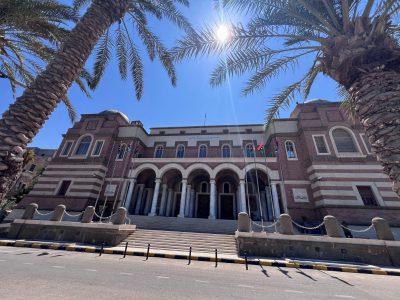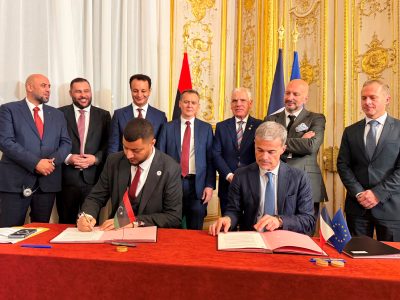Libya’s Gas Pipeline Sabotage Exposes Fragile Power Grid
When saboteurs shut down the gas pipeline feeding Libya’s Zawiya power station on Aug. 31, four generation units went dark and the national grid teetered on the brink of collapse. An event that might have been dismissed as another symptom of Libya’s long civil conflict suddenly exposed just how quickly a handful of vandals can turn out the lights for millions.
The disruption at Zawiya reveals a deeper truth: Libya’s electricity grid is dangerously vulnerable because it depends on a single stream of gas. Unless authorities reinforce infrastructure and diversify energy supply, similar attacks could trigger a nationwide blackout, undermining any prospect of economic recovery. Power is the thread that holds together hospitals, water systems and the possibility of a normal life; when that thread snaps, so does Libya’s claim to sovereignty.
Details of the incident are chilling in their simplicity. The General Electricity Company of Libya (GECOL) said units 1, 4, 5 and 6 at the Zawiya plant “were forced to stop working” when a small group of individuals shut down the gas pipeline feeding the station. Hours later engineers reopened the line and gradually restarted the units. In other words, the sabotage did not rely on sophisticated explosives or cyber‑hacking. It exploited a gap in physical security and that the plant – one of the country’s largest – has no alternative feedstock when its sole gas artery is pinched. GECOL itself admits that the electricity network remains under severe strain because of fuel shortages and wider operational challenges. That a handful of saboteurs could throw the system into chaos should prompt urgent questions about why such a critical pipeline was left unguarded.
The risks extend far beyond a few hours of darkness. GECOL warned that shutting the pipeline risked “a total collapse of the grid” and widespread blackouts across the country. Libya’s power plants operate on precarious margins: several units are ageing, maintenance is sporadic, and the grid has little buffer capacity. Blackouts shut down water pumping, stall hospitals and fuel anger in the streets. The country’s recent history shows how quickly service failures morph into protests and militia clashes. Fuel shortages and outdated equipment matter, but sabotage multiplies the danger by removing supply altogether. The warning from GECOL was not theatrical. When the gas stopped, megawatts vanished and the western grid lurched toward collapse. Next time the line is cut, the restart might not be so easy.
Responsibility for averting that nightmare lies squarely with the authorities. In its statement about the Zawiya incident, GECOL urged the “relevant authorities to intervene immediately to restore the gas supply and safeguard electricity production”. Intervention did arrive – the pipeline was reopened within a day – but the fact that it took a crisis to galvanize a response suggests that preventive measures are sorely lacking. Officials should not wait for saboteurs to strike before acting. They should legislate severe penalties for tampering with energy infrastructure and coordinate security forces to patrol vulnerable routes. Community leaders, especially in towns near pipelines and high‑voltage lines, should be enlisted as guardians rather than bystanders. A system that can be paralysed by a handful of saboteurs is an invitation to extortion.
Libya’s energy infrastructure has been prey to vandals for years. In 2018, GECOL pleaded with security authorities in Zliten to secure the electrical grid, warning that daily acts of theft and sabotage were causing power outages. The company said unknown groups had recently looted 300 meters of power lines and stolen 2,700 meters of wiring from the Magar area south of Zliten. Those attacks were not anomalies; they were part of a pattern. Today’s pipeline sabotage is the logical next step when criminals learn that nothing prevents them from stripping copper from pylons. The culture of impunity around infrastructure crimes allows factional militias and opportunistic thieves to hold the grid hostage.
Some officials have tried to deflect blame by pointing to the chronic shortages of fuel and outdated plants. It is true that Libya’s power crisis reflects years of mismanagement and war. The country has been in turmoil since a 2011 uprising toppled Muammar Gaddafi, and rival administrations have rarely cooperated on national projects. GECOL notes that fuel shortages and critical conditions affect the national grid. Yet that does not absolve the government of its duty to prevent sabotage. A grid running at the edge of its capacity makes protection even more urgent. To argue otherwise is to accept blackouts as inevitable rather than preventable.
What would a credible response look like? First, the government should secure critical infrastructure with manpower and law enforcement. Pipelines and substations need security perimeters, and the national police must treat vandalism of energy assets as a felony. Second, Libya should invest in monitoring technology. Fiber‑optic sensing systems, already mandatory on many pipelines worldwide, allow operators to detect changes in temperature, strain and acoustic vibrations along a line. This technology can detect unauthorized activities such as digging or tampering and help prevent sabotage and theft. Deployed along the gas line to Zawiya and other critical arteries, it would provide early warning before saboteurs can cut flow. Third, policymakers must diversify the energy mix. Redundancy – whether through additional gas lines, more fuel storage or a serious investment in renewables – gives the grid slack when one component fails. Libya’s neighbours have been exploring an “electric corridor” project to connect regional grids; Tripoli should pursue such cooperation vigorously.
Libya cannot rebuild its economy or hold credible elections if its power grid remains a soft target. The Zawiya sabotage should be the last time a handful of criminals threaten a national blackout. The measure of progress will not be politicians’ promises but whether, six months from now, remote sensors hum along critical pipelines and no major generating units are forced offline by vandals. Until then, every flicker in Libya’s lights will be a reminder of a nation hostage to sabotage.




